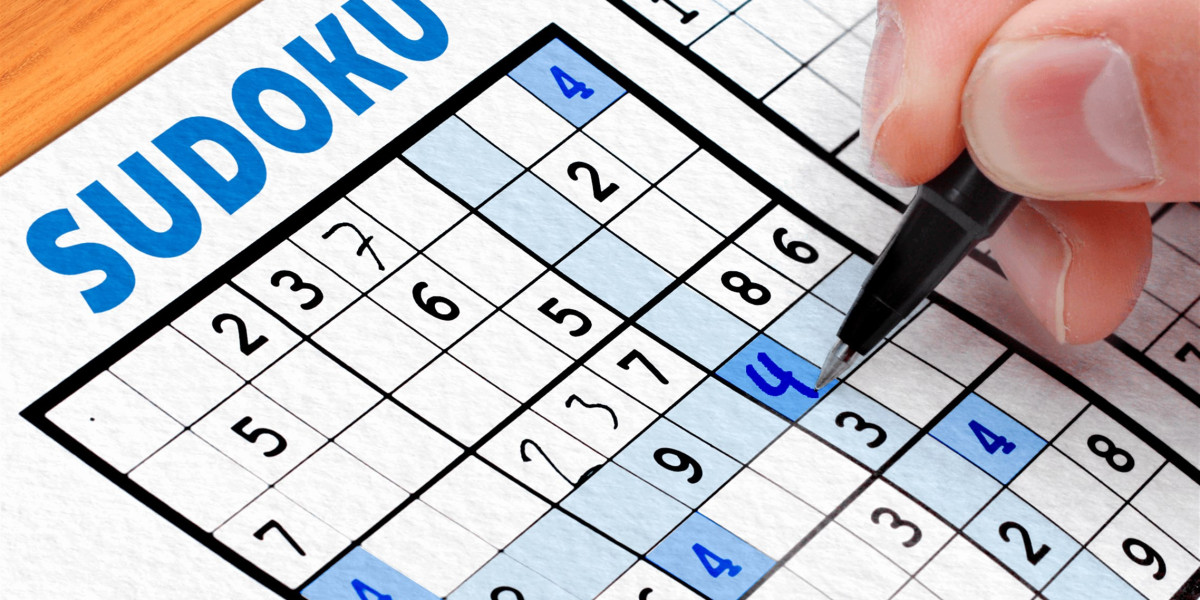It all started with boredom. Just a regular Tuesday morning, half a cup of lukewarm coffee, and a half-functioning brain. I opened my phone, scrolled through the usual chaos of social media, and thought, “I need something less stupid to do with my time.”
That’s when I saw it — the little blue-and-white grid of numbers: Sudoku.
I’d always thought Sudoku was just for math geniuses or retired engineers, but that day, something made me tap “Play.” Little did I know, I was about to sign up for one of the most quietly addictive brain games of my life.
The First Battle: Me vs. Numbers
The first few rounds were pure chaos. I had no idea what I was doing. I kept thinking, “Okay, no repeats in a row or column — how hard could that be?”
Answer: very hard.
I filled in random numbers like a confident fool and got that dreaded red flash that said “WRONG.” My ego took a hit. Then, being the stubborn human that I am, I told myself, “Fine. You think you’re smarter than me, little grid? Let’s go again.”
By the third puzzle, something clicked. I started spotting patterns, realizing how one small clue could unlock an entire section. Suddenly, I wasn’t just playing — I was solving.
And that tiny sense of victory? Oh, it was addictive.
Why Sudoku Is Weirdly Relaxing
Here’s the thing — Sudoku shouldn’t be relaxing. It’s literally a grid of logical traps designed to make you doubt your intelligence. But somehow, it is relaxing.
Maybe it’s because it forces your brain to focus. No notifications, no endless scrolling — just quiet logic. The world narrows down to 81 boxes, and all that matters is figuring out where that elusive “7” goes.
Some people meditate. I fill boxes with numbers. It’s the same effect, I swear.
Now, Sudoku has become my form of stress relief. Whenever life feels messy or overwhelming, I pull up a puzzle. For those ten or twenty minutes, I’m in control of something — neat, logical, and beautifully structured.
The Sweet Taste of Victory (and the Bitter Taste of Mistakes)
One morning, I finally beat an “Expert” level puzzle after 45 minutes of deep thinking. I stared at that perfectly filled grid with the pride of someone who just defused a bomb.
I took a screenshot. I might’ve even whispered, “I am the master of logic.”
And then, of course, the next puzzle humbled me immediately. I made a wrong move early on, didn’t notice it, and spent the next fifteen minutes spiraling into numerical chaos.
That’s the thing about Sudoku — it’s a rollercoaster. One moment you feel like a genius, the next you’re questioning your entire cognitive ability because you misplaced a 4.
But I love that. It keeps you grounded. Sudoku doesn’t let you coast. You either focus, or you fail — and there’s something really satisfying about that honesty.
The Funniest Sudoku Fails
If you play Sudoku long enough, you start to make creative mistakes.
Once, I played while half-asleep and decided that two “8s” in the same box were “fine for now.” I spent the next twenty minutes wondering why nothing made sense.
Another time, I played on paper with a pen. Big mistake. Halfway through, I realized my entire grid was doomed, and I had to cross out so many numbers it looked like a ransom note.
And then there was the time I bragged to a friend that I could “totally finish this puzzle in under five minutes.” It took me twenty-three. He still teases me about it.
What Keeps Me Hooked
There’s something deeply satisfying about how Sudoku rewards persistence.
Unlike most games, it doesn’t rely on luck. There’s no RNG, no random power-ups, no opponent to blame. It’s just you, your brain, and the rules of logic.
Every puzzle feels like a mini detective story. You start with a few clues, follow the trail, test your assumptions, and then — click — it all falls into place.
That click moment? That’s pure dopamine.
And the best part is, Sudoku doesn’t get old. The difficulty scales endlessly. You can go from casual “easy mode” puzzles to brutal ones that require techniques with names like “X-Wing” or “Swordfish.” (Whoever came up with those names deserves an award.)
My Secret Sudoku Ritual
I’ve developed a whole ritual around Sudoku now.
Every evening before bed, I grab my tablet, dim the lights, and open my favorite Sudoku app. I pick a “Medium” puzzle — hard enough to challenge me, but not so hard that I start questioning my existence.
I’ll usually make myself a cup of tea, put on some soft lo-fi music, and get lost in the grid. Some nights, I finish in ten minutes. Other nights, it takes me half an hour.
It’s my peaceful moment — a quiet, logic-filled pause before the chaos of the next day.
The Lessons Hidden in the Grid
After playing Sudoku for months, I realized it’s not just a puzzle — it’s a mirror of how I handle life.
Here’s what it’s taught me:
Rushing never helps. The faster I try to finish, the more mistakes I make. Same goes for real life.
Patience pays off. Sometimes, you just need to sit with uncertainty until the answer becomes clear.
Details matter. One wrong number can ruin everything — just like one careless assumption can throw off your plans.
Logic beats luck. No guessing. No hoping. Just thinking clearly and trusting your reasoning.
It sounds dramatic, but Sudoku has honestly made me more patient — both with puzzles and with people.
The Unexpected Joy of Doing Nothing Else
We live in a world that’s always screaming for our attention — messages, videos, emails, endless scrolling. Sudoku is one of the few things that makes me stop.
When I’m playing, I’m not multitasking. I’m not thinking about deadlines or dinner plans. It’s just pure, present focus.
That feeling — of being all there, even for a few minutes — is rare these days. And I think that’s why Sudoku still holds its charm, even in the age of flashy, fast-paced games.
My Sudoku Tips for Fellow Puzzle Addicts
If you’ve fallen down the Sudoku rabbit hole too, here are some tips from one addict to another:
Work from certainty. Start with what you know — it creates momentum.
Use notes! Pencil marks (or digital equivalents) are lifesavers.
Don’t guess early. It only creates chaos later.
Zoom out. Sometimes the solution isn’t in the box you’re staring at — it’s in another part of the grid.
Celebrate small wins. Every correct deduction is progress.
And remember: mistakes are part of the game. Even pros make them.
That One Time Sudoku Saved My Mood
I once had one of those bad days — the kind where nothing goes right. I was irritated, anxious, and couldn’t focus on anything.
Then I opened my Sudoku app.
Twenty minutes later, I had solved a puzzle, my mind was calm, and my mood had done a 180. It wasn’t magic — it was focus. Sudoku gave me a tiny piece of control back.
That’s when I realized Sudoku isn’t just a game. It’s therapy disguised as a grid of numbers.







